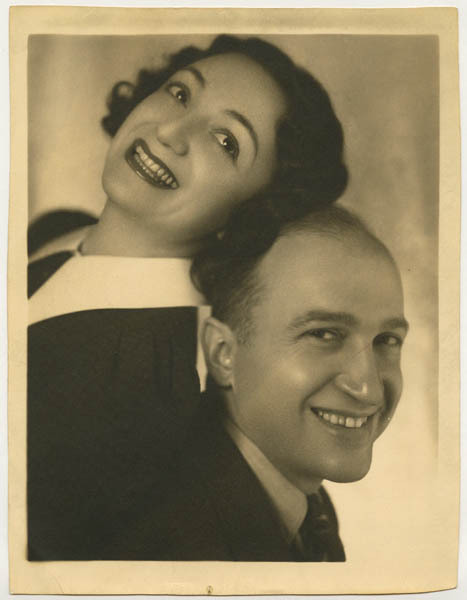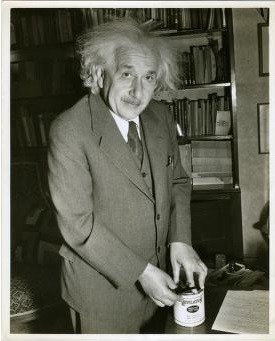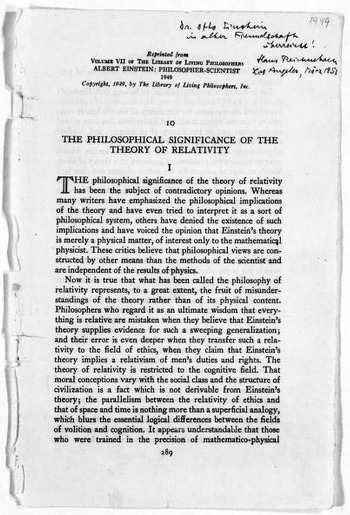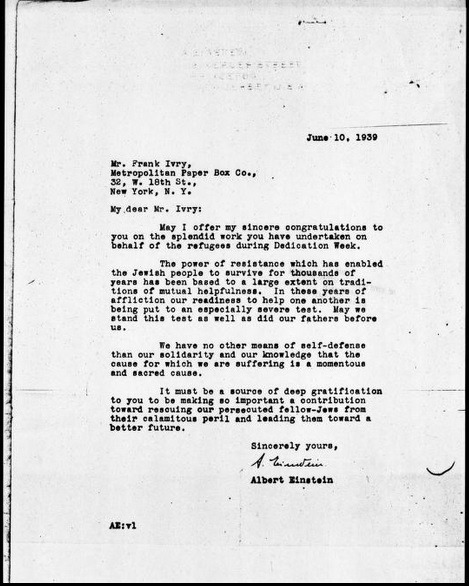We continue Sarah Ganton’s story of Molly Picon, for decades a household name in Yiddish theater and vaudeville, then a Broadway star and performer with the USO, then a radio personality. We’re very fortunate to have a rich record of her life through the archives of the American Jewish Historical Society, one of the five partners of the Center of Jewish History. Join us in celebrating this remarkable, vivacious, and endlessly talented woman. And in case you missed the series’ first installment, here’s a handy link: “From Vaudeville to ‘Fiddler’ (Re)introducing Molly Picon, the ‘Jewish Charlie Chaplin.’ ”

Molly Picon and Jacob Kalich, Vienna, 1923
We last saw Molly Picon in 1915, as she quit high school to perform in vaudeville full time. Indeed, she spent three years performing as Winter in an act called “The Four Seasons,” which toured with similar vaudeville acts. One such tour circuit landed “The Four Seasons” in Boston in the winter of 1918, at the height of the influenza epidemic.
All the theaters were closed down due to flu, except one—the Grand Opera House, showcasing Yiddish theater on Saturdays and managed by one Jacob Kalich. Molly went to the theater hoping that someone she had known in Philadelphia would know her and lend her some money. But instead she met Jacob.
Jacob—or Yonkel, as she called him—was seven years Molly’s senior. He was born in Poland and had studied to be a rabbi until he met an acting troupe, lent them his rabbinical attire for a costume and followed that costume (and the troupe) across Europe until he was hooked on theater. He had come to America in 1914 and made his way to Boston, where he met Molly; she was cast in one of his plays, and she stayed in Boston.[1]
The two complemented each other well. Molly could help Jacob learn American ways, and in turn, Jacob could help Molly learn the traditions and classic Yiddish she would need to know in order to succeed in the Yiddish theatre. They quickly fell in love, and married on June 29, 1919, in Molly’s childhood home.[2]
By 1920, it was clear that Molly was a star in Boston, but Jacob had his eyes on a bigger stage—Second Avenue in New York, the Broadway of Yiddish theater. Second Avenue was not yet interested, however, so Jacob formed another plan. He would take Molly to Europe, where she would make her name internationally known and then return triumphantly to America, where Second Avenue would be waiting for her with open arms.[3]
The benefits of Europe were twofold: exposure, and the ability to really hone Molly’s Yiddish. One news clipping Molly saved put it this way: “Kalich carried her off, not to New York, but to Europe, where she could perfect her accent, her acting, and her knowledge of Jewish life at its source.”[4]
And perfect her Yiddish she did. Though she traveled through Paris, Lodz, Vienna, Budapest and countless other European cities with Jacob for years, she remembered later that the duo “never mingled with people outside the Yiddish theater. Yiddish was our center, our link, and I never felt like a complete stranger in Europe because I was always in the midst of a familiar language and heritage—the Yiddish world.”[5]
Her Yiddish did need work, though, and indeed her personal papers include flash cards for phrases such as “The cantor has a splendid voice,” “I don’t know” and “Two poor persons marry,” Molly found a home in the European Yiddish world, and the Yiddish community accepted her gladly.[6]
Molly’s international fame secured, she and Jacob began to look back across the Atlantic to Second Avenue once more. They ultimately returned to the United States in 1923, where we will meet Molly next as she premieres in New York.
Sarah Ganton is a former intern at the Center for Jewish History.
Previously in our series:
From Vaudeville to “Fiddler”: (Re)introducing Molly Picon, the “Jewish Charlie Chaplin”
___________________________________________________________
[1] Picon, 20-24.
[2] Marriage Announcement of Molly Picon and Jacob Kalich, 1919; Molly Picon, papers; P-38; 55; 1089; American Jewish Historical Society, Boston, MA and New York, NY.
[3] Picon, 31.
[4] News Clipping on Jacob Kalich, n.d.; Molly Picon, papers; P-38; 54; 1083; American Jewish Historical Society, Boston, MA and New York, NY.
[5] Picon, 36.
[6] Language flash cards, n.d.; Molly Picon, papers; P-38; 54; 1086; American Jewish Historical Society, Boston, MA and New York, NY.



